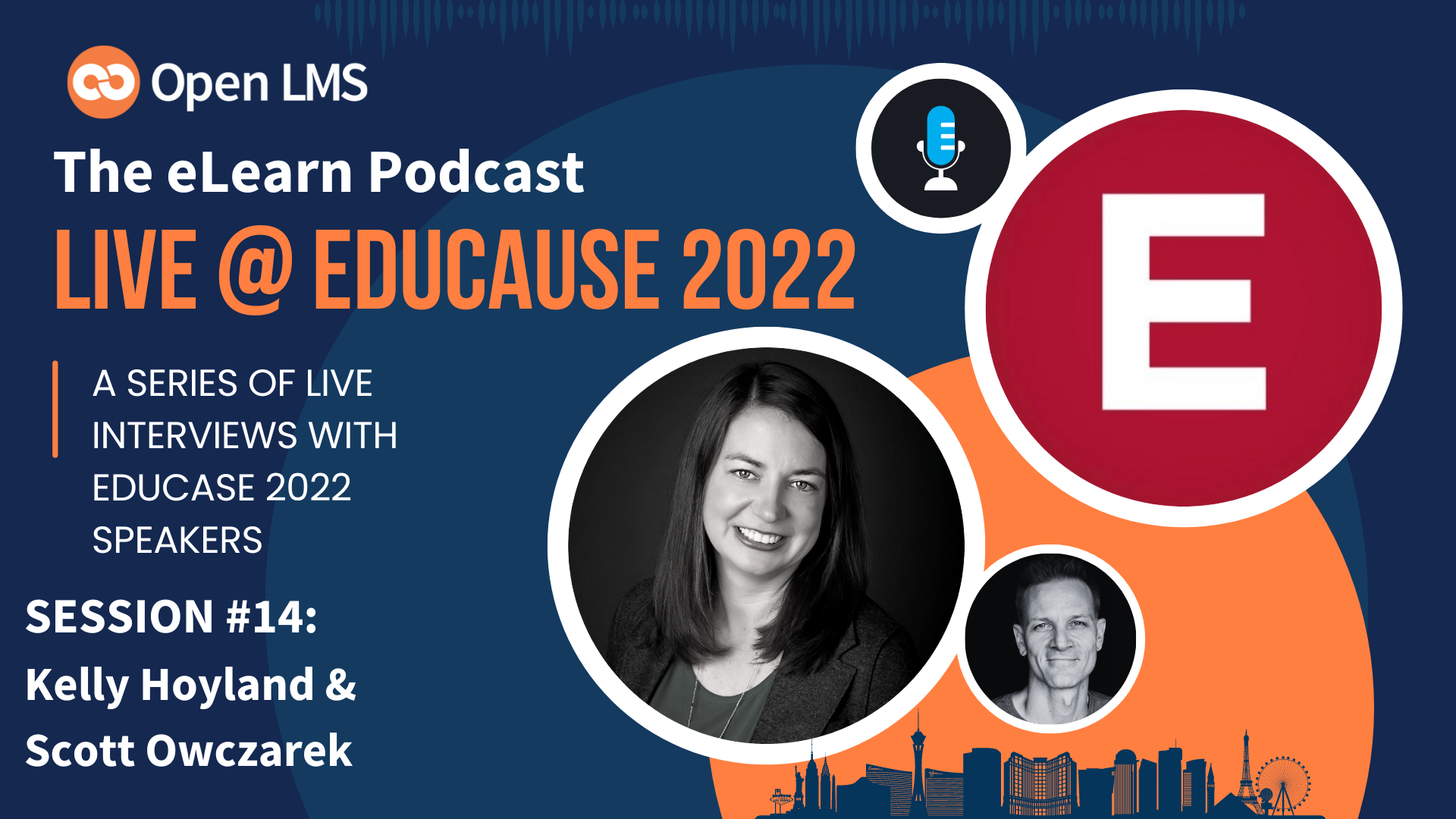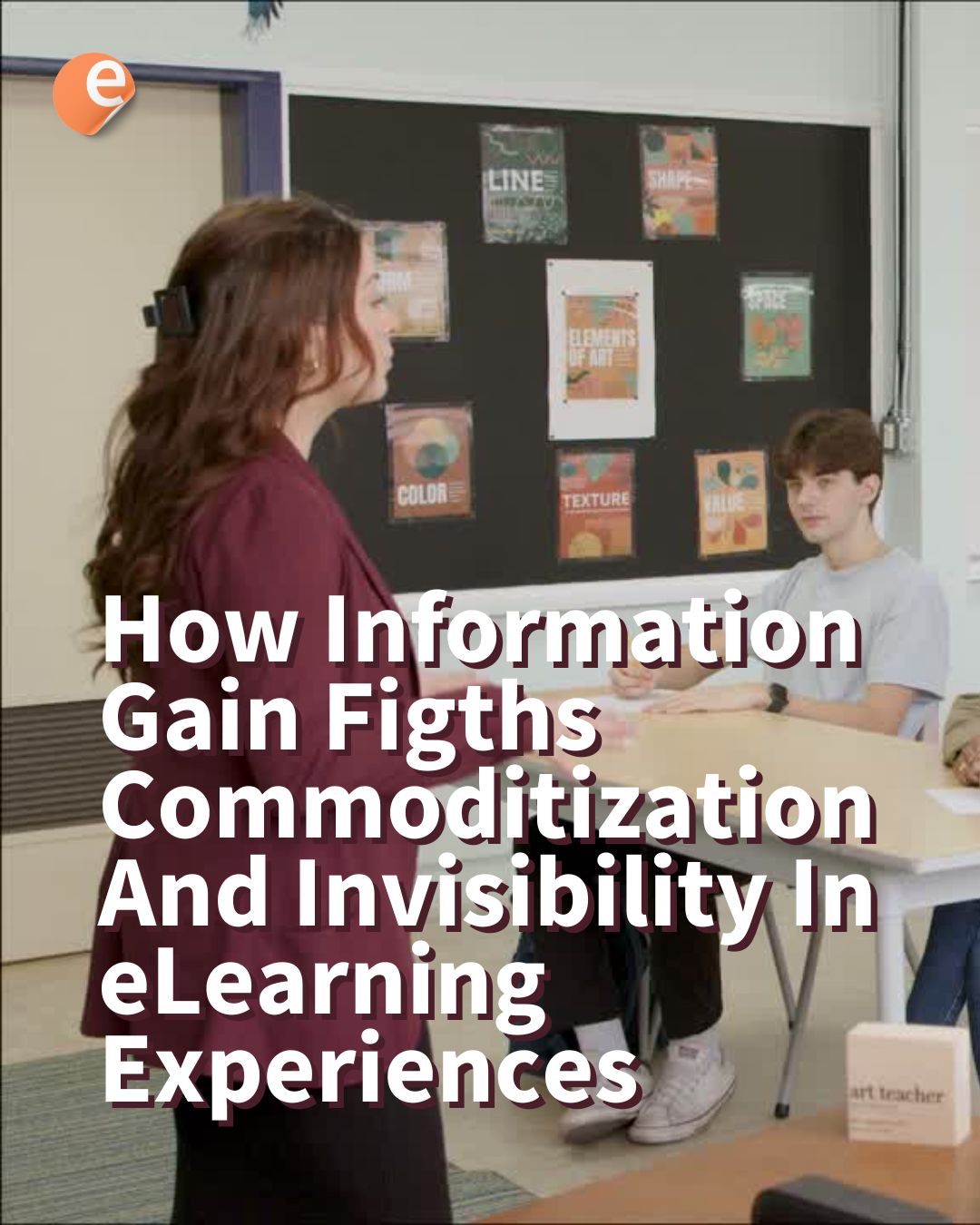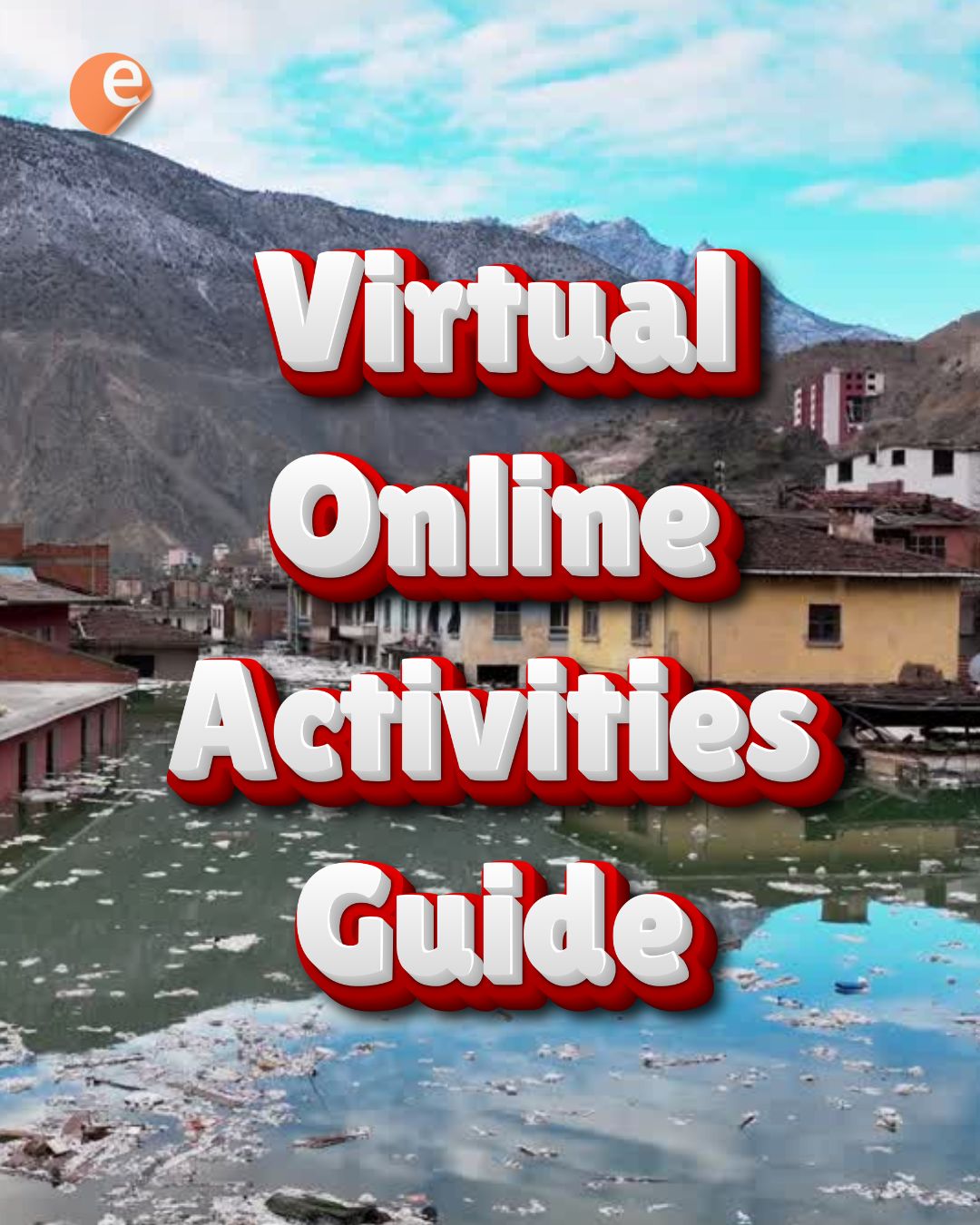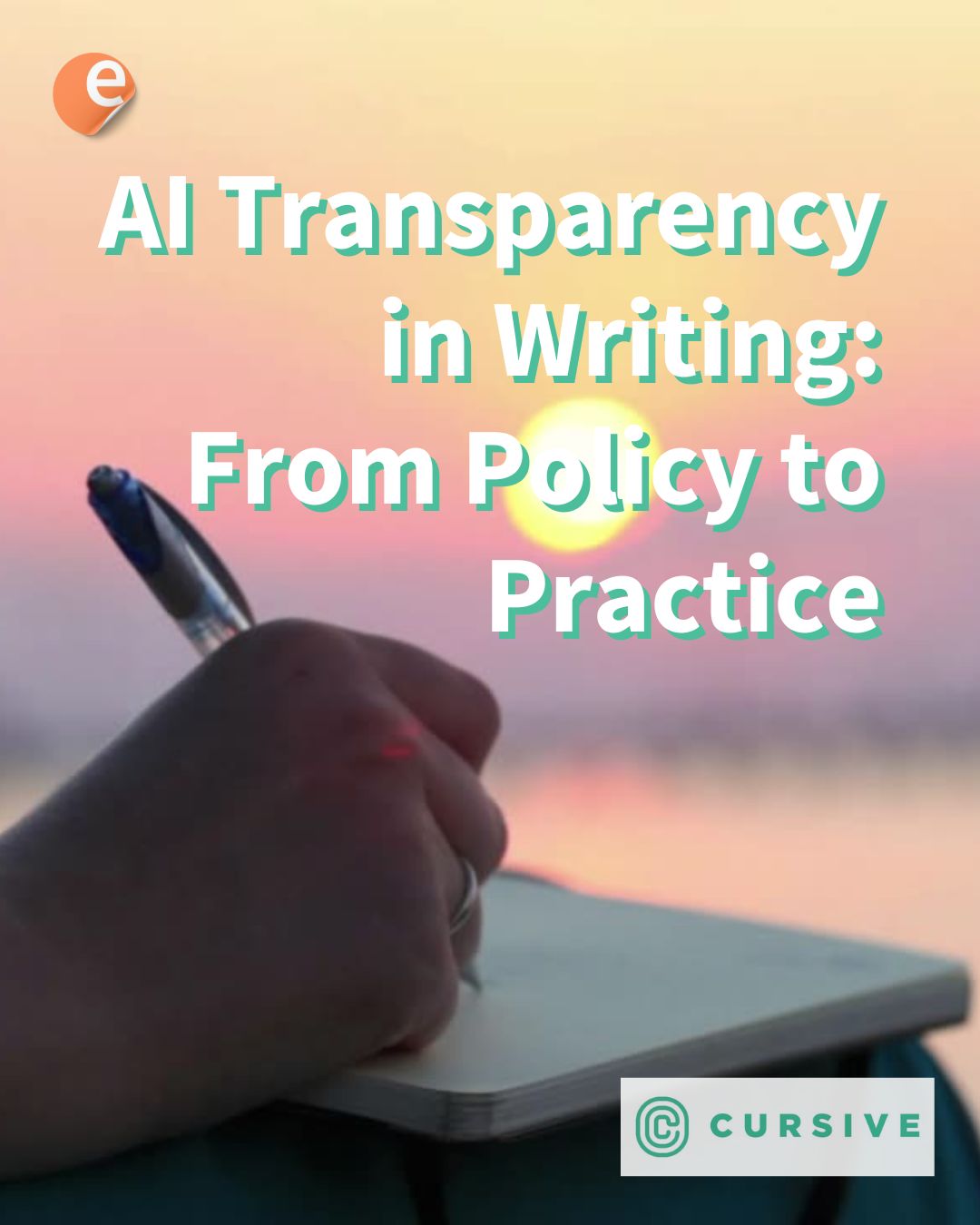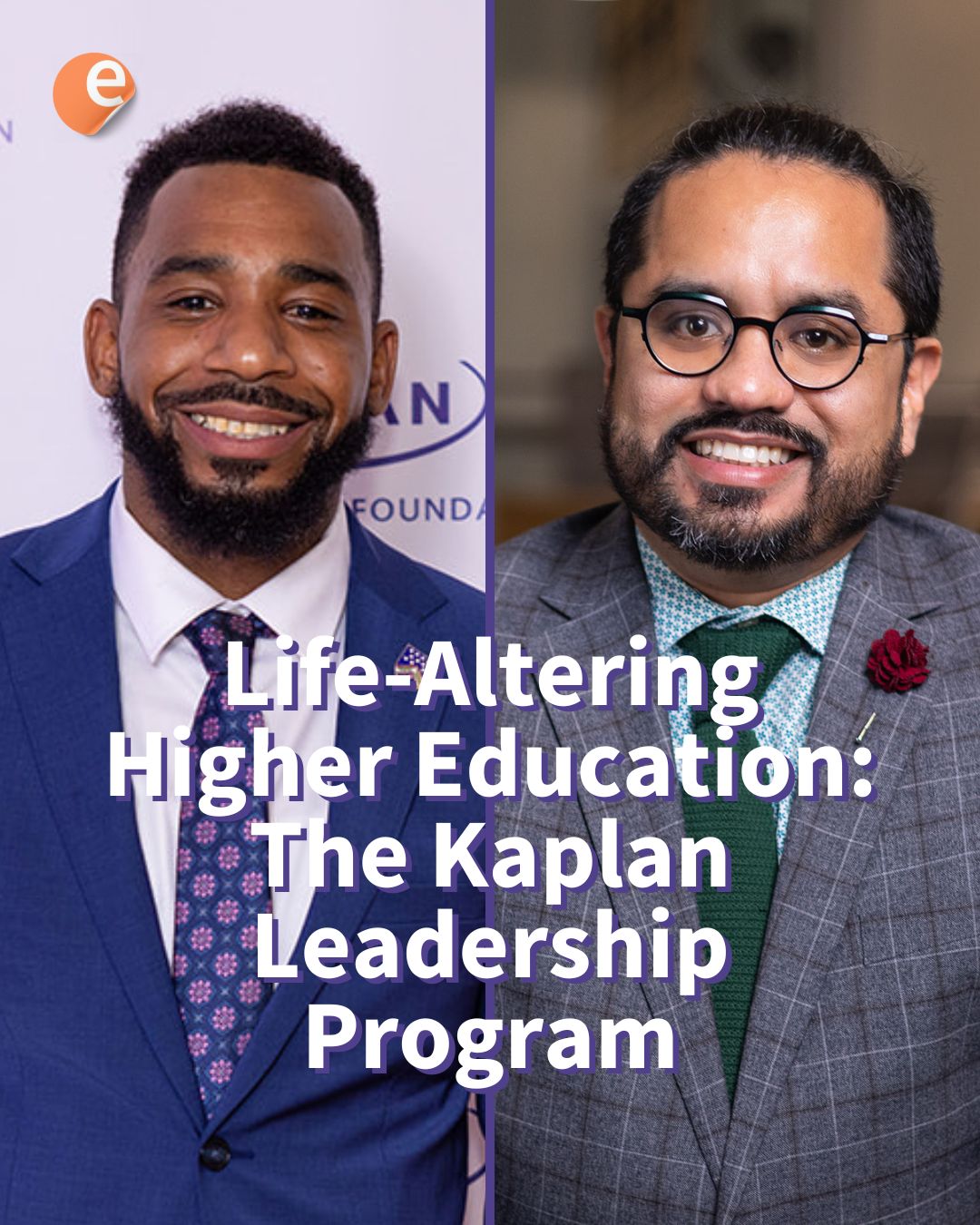The swirl of events that happened in 2022 made it a bookmark in history. But the chaotic nature of these developments recognizes no man-made boundaries. In learning and technology, 2022 was a year of reeling and consequences. But it also set a stage of complications, answers and the need for new mindsets.
Many of these mindsets were at full display at EDUCAUSE 2022, held in Denver. Ladek had the privilege to interact with many of them as they stopped by the Open LMS booth. We look back at the conference, but also at the year. And with these experts we aim to bring you an encompassing look at what’s coming.
Come back every day for a new expert!
№1. Bart Pursel, Unizin: Greater power in pooling IT resources & data
Bart is Chief Technology Officer of Unizin, a non-profit that represents a number of U.S. universities in their IT strategy and procurement. With an undeniable influence reaching beyond its members, Bart is embarking on a new campaign: To get their data back from vendors and to prevent future scenarios where it is not made readily available.
№2. Madeleine Renken: Listen to the young
For revelation instructional technologist at McKendree, it’s not just about giving a voice to students and young professionals. It’s about embracing the new ways we collaborate, listen openly, and touch on assumptions and issues previous generations might have not been willing to face.
№3. Raisha Cobb and Rene Weston Eborn: You’re now ready for any sudden modal switch, yes?
During COVID, state universities were into a situation that’s familiar to all of us, but with key differences in the particular impacts and the tools available (or not) to address them. Accustomed to be closer to their students, despite their senior Provost & CIO and Vice President roles, Raisha and Rene did not and will not rule out any tool, resource or form of communication to stay in touch with their students; nor they will depend on any single modality.
№4. Randall Shore: Expect a new wave of cloud enablement
The VP of Delivery and Support for Kion wants your institution to be a poster child for a cloud-based eLearning practice that is secure, not just mindful—attentive about data privacy, and that provides clear-cut financial benefits. After all, innovation is also supposed to spark significant returns (financial, social and more) over the long run.
№5. Peter Mosinskis, Kate Miffitt and Mike Pronovost: Equitable access as an IT prerogative
Making IT measurably impactful is hardly the lone job of the LMS admin. Yet, despite the relative novelty of the job, we can expect to have reached a level of professionalization in the field that would open spaces for conversations about the higher end. Accessibility in particular can ascend, from a UX or “surface”-level issue, to encompass social, economic and political factors that enlighten policies across the board.
№6. Brendan Aldrich: Data Officers to roll up their sleeves, watch LMS at play
The founder of Invoke Learning, a Higer Ed data lakehouse solution, has an extensive background as data officer, manager of enterprise-level information and business intelligence. There really is no substitute for going to the proverbial field, and see first-hand how students use their academic support platforms, in order to answer at least two key questions: Are users following proper data management practices, and is the LMS doing their best when it comes to its Learning purpose?
№7 Chris Hoffman: Future AR/VR scenarios in Higher Ed
For Chris, who works at UC Berkeley in The Forum for Collaborative Research, AR and VR technologies offer exciting opportunities for telling the stories of higher education. Whether supporting teaching and learning or research and scholarship, interesting applications are emerging on university campuses. How do IT service providers at universities plan for these new technologies? How do they protect the core missions and principles of higher education? Chris discusses how his team uses futures thinking and strategic forecasting to develop scenarios and signals of change that inform steps we can take right now.
№8. Lisa Stephens and Rebecca Frazee: Active learning means actively appropriating the LMS
These multi-faceted educational managers out of Buffalo and San Diego are ready to admit on behalf of the industry, that technology and platforms are never educationally neutral. Education experiences are liquids that will be shaped by the vase in which they are carried. Quality educators matter, perhaps more than ever; but going forward, their effectiveness can no longer be seen detached from the software they use and their tool-specific mastery.
№9. Kim Oppelt: Virtual classrooms have never been more engaging… and with ‘Hyflex’ they’re only getting better
It sounds almost too pampering: Let students pick their method, format, even their preferred form of assessment. But the Senior Director of Advocacy, Community, and Communications at Class wouldn’t have it any other way. Not just that: She sees it as the future virtual classrooms are heading towards, fully convinced the extra efforts in planning, interactive experience design, teacher training and data science required to make it happen will be more than worth it.
№10. Kimberly Moore: A whole new mind for the integration between academia and the private sector
The educational structure of a university degree, and most on-the-job training programs could not be any more different. But starting here, the similarities only begin to compound. Universities and colleges are facing with some of the same issues of companies, from a sluggish recovery, to talent and upskilling challenges, retention, culture and more. Kimberly, Executive Director for Workforce, Professional and Community Education at Wichita State University, is aware of these common issues and the common roadblocks towards progress and collaboration, often self-imposed. “Engineers do not need another degree. But they will always need new skills.”
№11. Anne Clancy and Michael Kubit: Hope for the dwindled digital divide among the world’s learners
Equity, achievement and impact will be the ground on which this key question would be best asked: “Should learners be allowed or encouraged to BYOD?” (Bring Your Own Device) Perhaps T-Mobile’s best contribution to the eLearning community is the research done on connectivity needs among higher education students. which claims, “students want devices, students want connectivity.” To further this conversation and accomplish results, Anne and Michael have been able to trace key groups with “connectivity insecurity,” which to little surprise is only one of several these groups of students, often in the community college system, face. (Food, housing among others.)
№12. Danielle Rourke: Gamification will only work for the enthusiastic
And few people were as enthusiastic about gamification and the potential of eSports in education as the Senior Strategist for Higher Ed at Dell. Recent research has focused on both the “experiential” attributes of eSports, and why they are so compelling; as well as its potential on areas including problem solving, creativity, critical thinking, teamwork, digital literacy and communication.
№13. Pope Ashworth, Matthew Dreitlein, Pavani Reddy, Dawn Ressel and Emily White: More collaborations in equitable learning design
Talking to each other should be seen as a must. Fortunately for many, including a group of Native American students who were the focus of a joint project between University of Montana and EAB, the hearty bunch leading the collaboration is as united as it is talkative. Information exchanges should not be limited to people, though: The need for truly interoperable ecosystems, which can be seen as an equity play, it’s actually a savvy business practice. And don’t get us started on the potential of unified learning data for research.
№14. Kelly Howland & Scott Owczarek: Welcome the year of microcredentials
From short courses, to micro-masters, and soon the first fully online PhDs—Everyone is realizing microcredentials are good for all of us. The level of transparency and granularity across competencies will set a point of no return, which might represent a much needed new opportunity for Higher Education institutions. Not that Michigan State needs to worry. Its partnership with 1EdTech, formerly IMS Global, is setting a standards on, well, standards, for digital badges, credentialing and accurate data representations of learning experiences and acquired competencies.
№15. Jase Teoh: Embrace the divergent management styles of BIPOC leaders
For Jase, Senior Director of Academic Technology for California State University Maritime Academy, popular mantras like “Bring your whole self to work” is more than a new HR mindset. A diversity of backgrounds, particularly at the senior management level, is perhaps groupthink’s best antidote. Add a story of making an LMS work inside a ship sailing the West Coast, and you get one of the most compelling leadership panels of the event.
№16. Victoria Getis and Jay Gladden: A call for empowerment for students and teachers across the board
Modern LMS today let you customize features, layouts and the overall look and feel… of an organization. But what if we were to allow users themselves to be in charge of their own platform customization? For Getis, Director of Teaching and Learning Technologies at Northwestern University, and Gladden, Associate Vice President of Learning Technologies at Indiana University, this is basically the only road IT should be headed. It is more than cosmetics: It is a symbol of the commitment of technology leaders towards the users and their experiences. A Getis points out, policies designed to empower learners technologically will be met with strongly positive response, and will increase the “digital climate” or a learning community.
BONUS: Check out Noah Geisel on Microcredentials
Noah is the Micro-Credential Program Manager at the University of Colorado.



